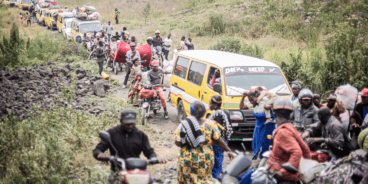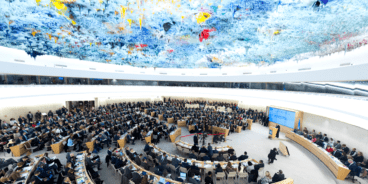Atrocity Alert No. 61: Democratic Republic of the Congo and Iraq
Atrocity Alert is a weekly publication by the Global Centre for the Responsibility to Protect highlighting situations where populations are at risk of, or are enduring, mass atrocity crimes.
Democratic Republic of the Congo
The government of the Democratic Republic of the Congo (DRC) reported on 26 June that another 10 mass graves had been discovered in the greater Kasai region, adding to the 42 mass graves already reported by the Office of the UN High Commissioner for Human Rights. According to the High Commissioner, Zeid Ra’ad Al Hussein, a pro-government militia named “Bana Mura” has also recently carried out attacks against specific ethnic groups in Kasai, mutilating and hacking to death civilians from targeted villages.
The conflict in the vast Kasai region of the DRC, which started as a dispute between the Kamuina Nsapu militia and government armed forces, has developed into a major humanitarian and human rights crisis. According to the Catholic Church in the DRC, more than 3,300 people have been killed in the Kasai region since August 2016. An additional 1.3 million people have been displaced.
Following diplomatic calls for the DRC government to establish a credible investigation into the violence in the Kasai region, on 23 June the UN Human Rights Council mandated the High Commissioner to appoint a team of international experts to collect information and “determine facts concerning alleged human rights violations and abuses.” The UN Special Adviser on the Prevention of Genocide, Adama Dieng, also visited the Kasai and Kivu regions of the DRC from 19 to 24 June.
It is essential that the HRC-mandated experts be appointed and dispatched to the Congo immediately. The government of the DRC must fully cooperate with the international team, providing access to all relevant sites and establishing a credible independent investigative mechanism. If the government fails to fulfill its promises in this regard, the International Criminal Court and UN Security Council should be prepared to act to ensure accountability.
Iraq
Thousands of civilians remain trapped by intense fighting as the military offensive by the Iraqi Security Forces (ISF) and Kurdish Peshmerga to recapture Mosul from the so-called Islamic State of Iraq and the Levant (ISIL) enters its final stage. According to the UN Refugee Agency, between 14 and 21 June over 20,000 people fled Mosul and at least 432,726 people remain displaced. Despite only holding a small pocket of remaining territory within Mosul, ISIL fighters continue to target civilians and commit war crimes.
On 21 June ISIL completely destroyed Mosul’s historic al-Nuri mosque and al-Hadba minaret in a deliberate explosion. ISIL claimed the mosque was destroyed in an airstrike by the United States-led coalition, but this was disputed by the Iraqi government and Mosul locals. Three years earlier the leader of ISIL, Abu Bakr al-Badhdadi, had declared ISIL’s caliphate from within the twelfth century mosque, which is a major religious and cultural landmark. The Special Representative of the UN Secretary-General in Iraq, Ján Kubiš, declared that ISIL’s deliberate destruction of the al-Nuri mosque “shows their desperation and signals their end.”
The intentional destruction of the al-Nuri mosque is an attack on the religious and cultural heritage of the Iraqi people and all of humanity. Such an act is a clear violation of UN Security Council Resolution 2347 and amounts to a war crime under international law. In keeping with previous public commitments, the Iraqi government should urge the UN Security Council to immediately establish an international investigative commission to collect and protect evidence regarding all mass atrocity crimes perpetrated by ISIL in Iraq.
Read Next
Related Publications

Atrocity Alert No. 425: Democratic Republic of the Congo, Afghanistan and Holocaust Remembrance Day

